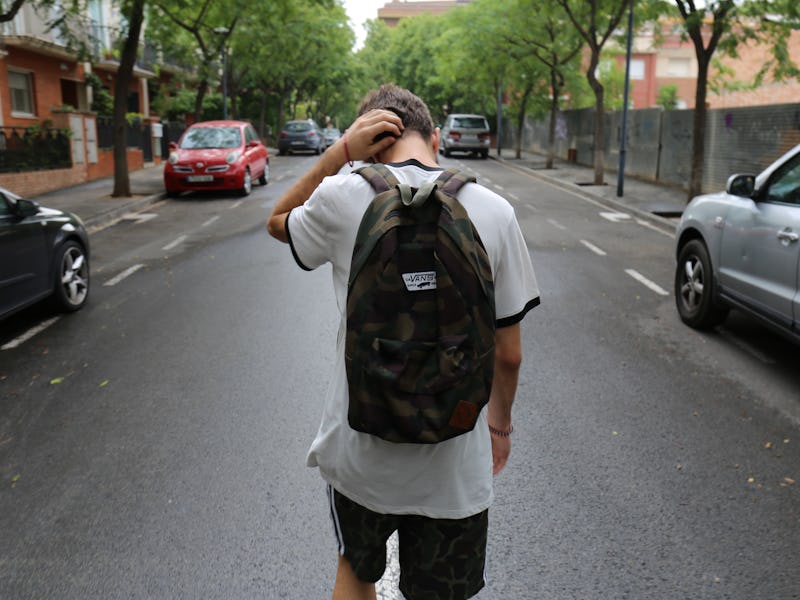US Election Left Scars on 25 Percent of American Youth, Say Scientists
It raises the risk for future psychological issues.

Three months after Donald Trump was elected as the 45th president of the United States on November 8, 2016, a team of scientists asked hundreds of students at Arizona State University a simple question: How are you feeling? The results of that survey, published in the Journal of American College Health on Monday, reveal a stark effect of this period in history on the nation’s youth.
In the paper, the scientists report that the election constituted a “traumatic experience” for 25 percent of the 769 students surveyed. These high levels of stress, argue the researchers, indicate that mental health professionals who work with students need to consider how young people are affected by the political environment.
“One out of four students met criteria for clinically significant symptoms related to the election,” the researchers write. “The high level of event-related distress is concerning because elevated symptoms of event-related stress are predictive of future distress and subsequent PTSD diagnoses.”
A new study shows how college students were affected by the election.
The students represented a variety of racial and ethnic backgrounds, religions, and social classes. Overall, 253 students identified as Democrats, 276 as Republicans, and 235 as “other.” They were asked how satisfied they were the election results, the extent to which they were upset by the outcome of the election, and how the election results impacted their close relationships. These questions were a part of a psychological assessment test called the Impact of Event Scale, which is used to gauge whether or not people can be diagnosed with PTSD.
They determined that 37.2 percent of students were completely dissatisfied with the election results, 18.5 percent were completely satisfied, and everyone else was in the middle. Meanwhile, 39 percent of the students were extremely upset, and 28.5 percent weren’t upset at all. When it came to the effect the election had on relationships, 24.2 percent said relationships were impacted negatively, 10.4 percent reported that there was a negative impact, and 65 percent announced there was no impact at all.
On average, total scores did not exceed clinically significant levels of stress. But 192 individuals, or 25 percent of the students, were above the cutoff for “clinically significant event-related distress.” The students that were the most negatively impacted by the election were Democrats, students of color, and women — females scored about 45 percent higher than males on the assessment.
The study’s authors reason that the tone of the election and the surprise of Trump’s election might have heavily influenced the formation of stress. But the idea that college students were severely stressed by the election isn’t a total surprise in consideration of other surveys. The 2017 Stress in America survey, an annual report conducted by the American Psychological Association, determined that more than half of Americans think these current times are the lowest point in U.S. history that they can remember. The most reported source of stress was the “future of the nation.”
What remains to be seen is how this stress will continue to affect people in the years to come. The scientists behind this new study conducted the research in part to lay the groundwork for that research — whether or not the stress of now will have a long-lasting impact on young people is a major concern to psychologists. Last November, during the first anniversary of the election, psychologist Vaile Wright, Ph.D., told Inverse that it was likely that “given the level of stress” of the election it wouldn’t be surprising if it caused people to feel bad in the years to come.
Abstract
Objectives: College students have cited the 2016 U.S. presidential election as a significant source of stress. The current study examined the prevalence and demographic correlates of clinically significant election-related avoidance and intrusion symptoms among college students 2–3 months after the election.
Participants: College students attending a large public university (N = 769; Mage = 19.19; 48.2% female; 58.4% White) were surveyed in January and February 2017.
Methods: Participants completed a validated measure of clinically significant event-related distress symptoms (eg, intrusive thoughts, avoidance) and demographic questions.
Results: One out of four students met criteria for clinically significant symptoms related to the election. Regression analyses suggested that sex, political party, religion, and perceived impact of the election on relationships were more useful predictors of stress symptoms than race or social class.
Conclusions: The high level of event-related distress is concerning because elevated symptoms of event-related stress are predictive of future distress and subsequent PTSD diagnoses.